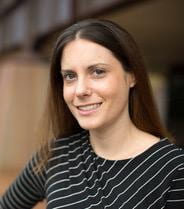

HOW YOU SAY IT
Why We Judge Others by the Way They Talk - and the Costs of This Hidden Bias
An Amazon Best Science Book of 2020
A groundbreaking examination of how speech causes some of our
deepest social divides
— and how it can help us overcome them.
We gravitate toward people like us; it’s human nature. Race, class, and gender shape our social identities, and thus who we perceive as “like us” or “not like us”. But one overlooked factor can be even more powerful: the way we speak.
As the pioneering psychologist Katherine Kinzler reveals in How You Say It, the way we talk is central to our social identity because our speech largely reflects the voices we heard as children. We can change how we speak to some extent, whether by “code-switching” between dialects or learning a new language; over time, your speech even changes to reflect your evolving social identity and aspirations. But for the most part, we are forever marked by our native tongue—and are hardwired to prejudge others by theirs, often with serious consequences. Your accent alone can determine the economic opportunity or discrimination you encounter in life, making speech one of the most urgent social-justice issues of our day.
Our linguistic differences present challenges, Kinzler shows, but they also can be a force for good. Humans can benefit from being exposed to multiple languages —a paradox that should inspire us to master this ancient source of tribalism, and rethink the role that speech plays in our society.

KATHERINE D. KINZLER, PhD
is a Professor and Chair of the Department of Psychology at the University of Chicago. She holds degrees from Yale and Harvard, has written for the New York Times and other outlets, and was named a “Young Scientist” by the World Economic Forum—one of 50 scientists working to shape our future. She lives in Chicago.
FROM BBC: THE SUBTLE WAYS YOUR ACCENT DEFINES YOU
We all attribute social meaning to language in subtle ways. As children grow up, they begin to pick up on cultural prejudices present in society – including those against people who speak in what society considers non-standard dialects of a language. In this BBC reel, Katherine Kinzler explains how as listeners, we have power to positively shape how others communicate.
INDUSTRY REVIEWS
“How You Say It makes a crisp but comprehensive case that although our distaste for ways of speaking that differ from ours is baked into us, true civilization requires that we work against it as much as possible.”
—John McWhorter
New York Times Book Review
Justice Ruth Bader Ginsburg grew up with a solid old-school Brooklyn accent. She displays no trace of it in recordings of her work as a young litigator, but today, one can hear shades of it in her speech on and off the court. Why?
Black English is often reviled as an indication of lower intelligence, and yet ever more, advertisers seek out voice-over artists with an identifiably “Black” sound. Why?

“An articulate examination of an underrecognized aspect of human communication.” – Kirkus
In her persuasive first book, Professor Kinzler maintains that the way we speak, whether in a “foreign” accent, a “nonstandard” version of our own language, or a “high-status” one, affects both how we perceive the world and how we are perceived by others.
“Well-written and entertainingly told, Kinzler’s persuasive exploration of linguistic-based differences will awaken readers to potentially unrecognized biases.” – Publisher’s Weekly
Kinzler explores in this revelatory and thought-provoking debut the social assumptions people attach to accents and speaking styles, to sometimes devastating effect.
MEDIA COVERAGE AND INTERVIEWS

BYU's Top of Mind with Julie Rose

NPR All Things Considered

The Vocal Fries Podcast

BOOK Q&A with Prof. Emily Oster of Brown University
Language, Bilingualism, Kids, etc…
“Language is personal. The way you speak can give you insight into who you are and who other people are too. It can cause people to connect, but it can also cause them to discriminate and divide. Yet, we aren’t always aware of the importance of language for our lives and the lives of others. “
BOOK Q&A with Deborah Kalb
Serbo-Croatian, Surprises, Subtle bias, and more…
“When you think about your identity – how you feel about being “you,” who you connect with, who you like, and who you don’t like – you may not think much about your language. But once you start to see how your identity relates to the way you speak, and how others speak, I think you’ll start seeing language everywhere.”
A fascinating introduction to the subtle yet powerful biases we have for accents. Highly recommended for anyone working for social justice or simply intrigued by how the mind works.
A powerfully original, eye-opening book about the many ways we misjudge each other when we open our mouths to speak. A smart and delightful treat for you, youz, yins, and y’all.
How You Say It takes readers on a personal and experimental journey that will be appealing and informative to a general audience and scientists alike. A gifted writer, Kinzler displays that rare ability to engage readers with many intricate, yet highly accessible, scientific details.




























